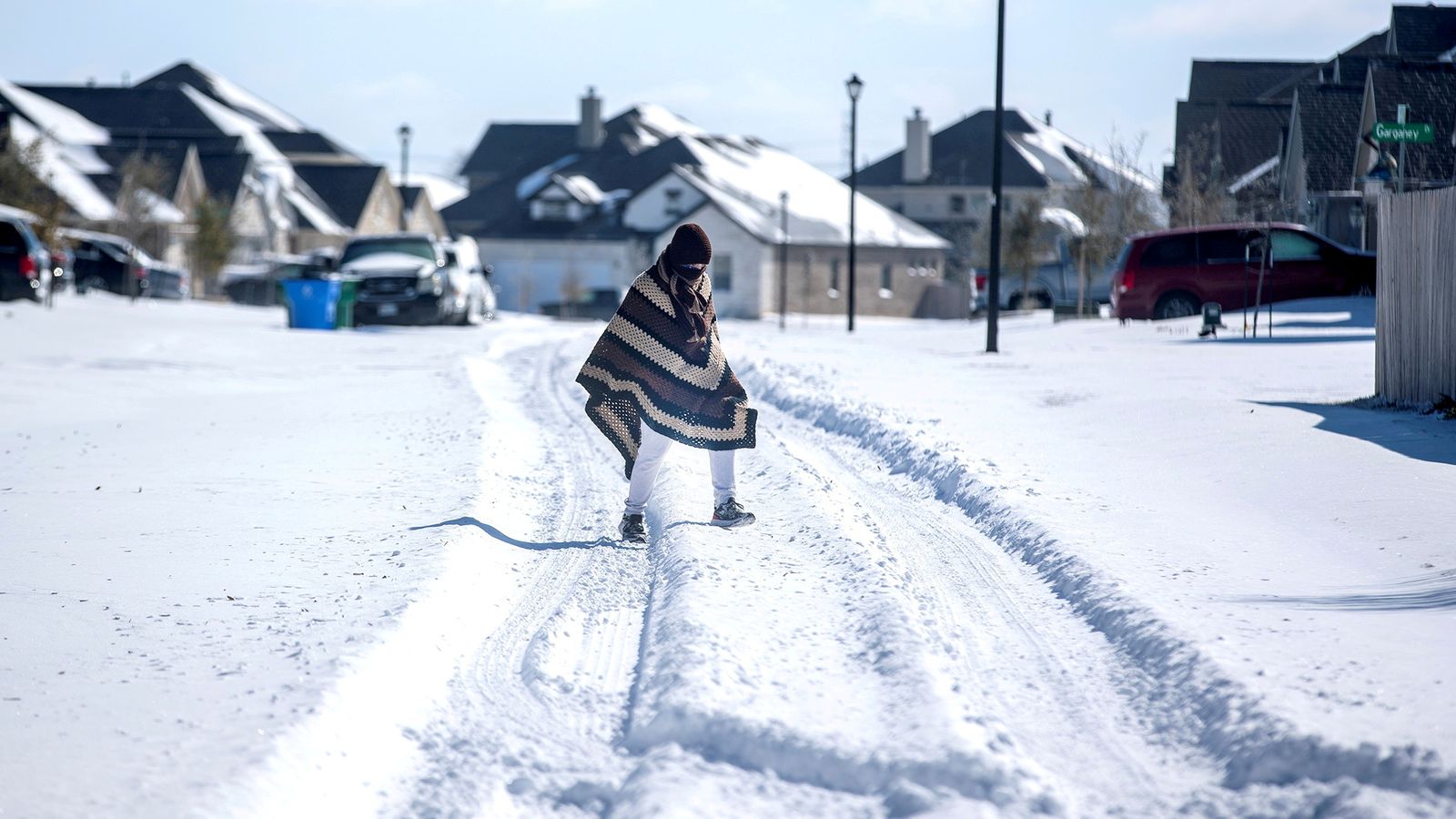In Mountain Peak Drive, the neighbours are gathering in the street.
In this corner of Texas, there is a strong sense of community – a desire to help each other out. And right now, there’s a lot of helping to be done.
The water has just been turned back on in this community, near the town of Avondale, after two days. Already a couple of houses have burst pipes, mercifully under control, but round the corner, another neighbour’s home is flooding. The electricity supply comes and goes. And the roads are still icy.
“I grew up in Colorado, so I know about ice and snow,” one man tells me, “but I’ve never seen anything like this since I moved to Texas. We’re pretty close to each other in this neighbourhood, we help each other out, but a lot of the people just don’t know how to cope with these conditions.”
It is painfully true. The state, the second biggest state in America behind distant Alaska, is still struggling to get on top of the problems caused by the sudden arrival of Arctic weather. Many homes have been without electricity, water, or both. Roads still haven’t been gritted and, hobbled by the inability of delivery lorries to reach them, shops are running out of supplies.
There is simmering anger. Some pointed at the power grid, which, it is argued, failed to anticipate the terrible weather and plan accordingly. The idea of rotating blackouts, where the overall supply was protected by imposing scheduled power cuts in certain areas, has failed. Some people have been without power for days on end; other areas, most notably downtown Dallas, home to banks, hotels and skyscraper offices, have been unaffected.
I met Blake Boyce shopping for supplies. He has been putting snow into his bathtub, and allowing it to melt, in order to have water for his house. “The guys at the power company – the gazillionaires who make all the money out of us – they should have seen this coming and prepared,” he told me. “It’s not me that I’m worried about. I’ll be okay, but there are vulnerable people – homeless or disabled – who are having a terrible time now. People are dying because of this, and it shouldn’t have happened.”
Alex Watson was shopping too, her face almost completely wrapped up against the cold. She has a three-year-old son and was nervous about looking after him in the midst of this uncertainty.
“We’ve got no water at all and my son is getting cold. It’s impossible to keep him warm,” she said. “We’re nervous because the power comes back, and then it goes again. I’m worried about getting food for my son.”
The fire service is helping to distribute water, but they don’t have much time, with the number of call-outs rocketing way above normal levels. Among them, a string of people who have suffered carbon monoxide poisoning, after trying to warm themselves up with camping stoves, or by sitting in a car with the engine on, in a garage.
It has been a very tough time in what is normally, perhaps, the most bullishly confident of all the states. Texas is often used as a symbol of rugged self-determination, but over this past week it has seemed helpless in the face of nature.
A lorry that was due to arrive in Avondale, to hand out water, didn’t arrive. It seems it got stuck in the snow. Some in this community are coping; but many are feeling the strain.
The good news for Texas is that this snap of harsh weather is forecast to come to an end. By Monday, the temperature is forecast to reach 18C (64F); by Wednesday it could climb to 24C (75F). The snow and ice will melt away; the memories will linger for a lot longer.






















